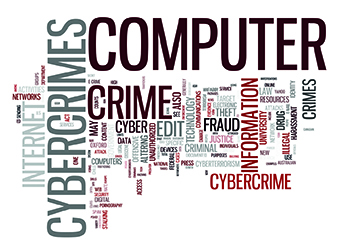 COVID-19 did result in altering modi operandi of criminals. Offences related to cybercrime and online criminal activities increased significantly. Trade of illicit goods and services has moved even more to the Darknet, the number of phishing attempts, cases in online fraud, investment fraud, cyberattacks in the health area and trade in counterfeit medical products have increased. As children spend more time on-line, number of child sexual exploitation cases has also sharply risen in Europe. Internet related crimes have had more opportunities to hit and isolation has made people more vulnerable. To this extent, the protection of fundamental rights became even more important.
COVID-19 did result in altering modi operandi of criminals. Offences related to cybercrime and online criminal activities increased significantly. Trade of illicit goods and services has moved even more to the Darknet, the number of phishing attempts, cases in online fraud, investment fraud, cyberattacks in the health area and trade in counterfeit medical products have increased. As children spend more time on-line, number of child sexual exploitation cases has also sharply risen in Europe. Internet related crimes have had more opportunities to hit and isolation has made people more vulnerable. To this extent, the protection of fundamental rights became even more important.
At operation level, judges, prosecutors and lawyers (as well as other criminal justice professionals) had to adjust their working methods to the new situation by organising on-line meetings, interrogations and hearings. To comply with safety measures during the Covid Pandemic, certain investigation methods, such as face-to-face interviews, interrogations, surveillance, arrests, house and on-site searches and audits could not be applied. Open source intelligence, use of social media, internet-related searches, cyber patrolling, videoconferencing involving vulnerable victims got even higher importance in investigations; the Covid Pandemic has proved that criminal legal practitioners need to improve knowledge in internet/online investigations in all crime areas.
In response to this Call, ERA presents a multi-annual Project which addresses various challenges that judges, prosecutors and lawyers in private practice working in the field of EU criminal justice will have to face for the years ahead. Some of these challenges (videoconferencing, wide use of open source intelligence tools, internet-related crimes, digital tech, etc.) are there to stay also in the “new normal” and well beyond the end of the Pandemic.
